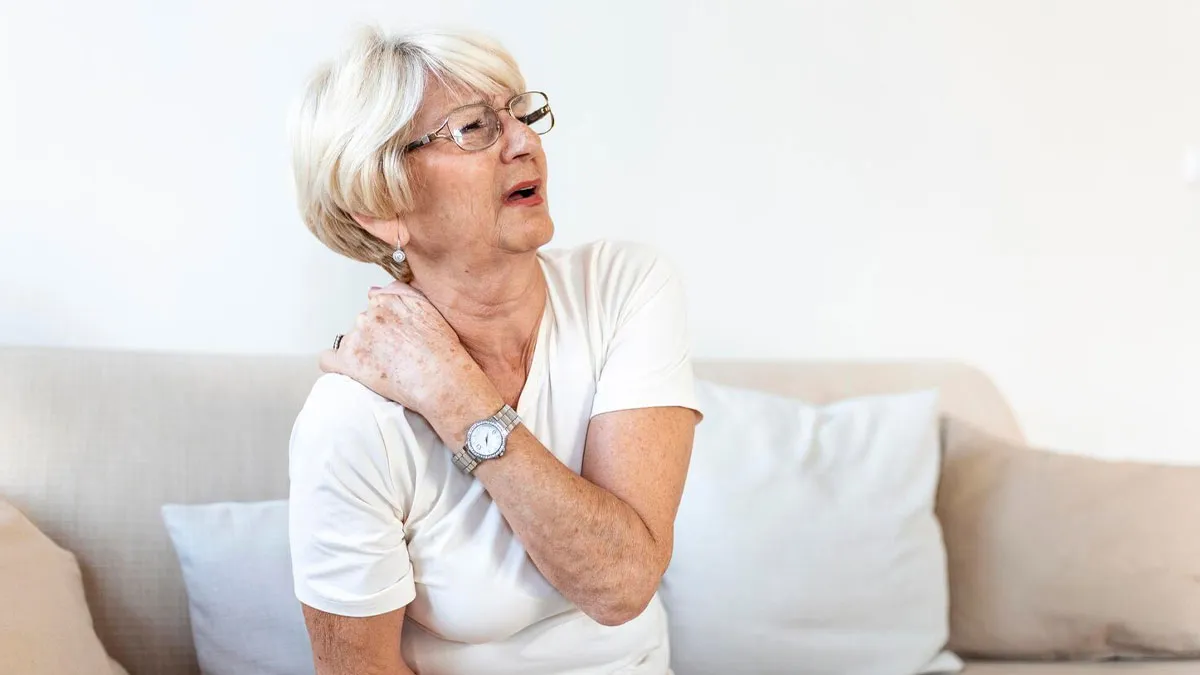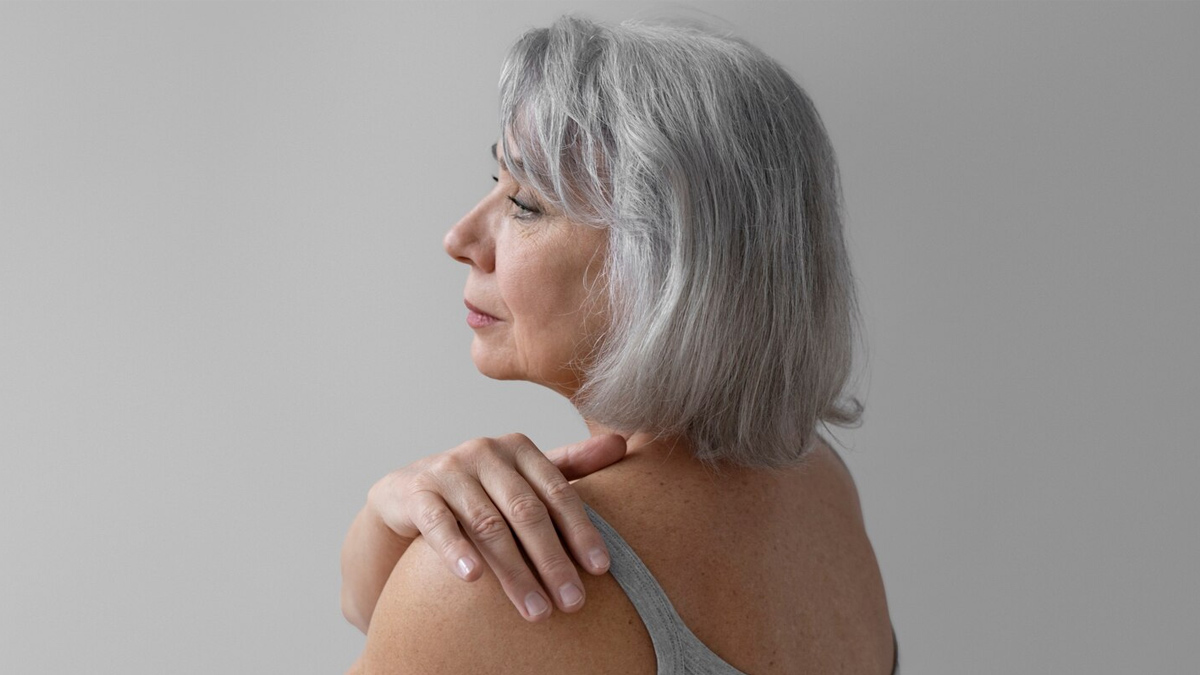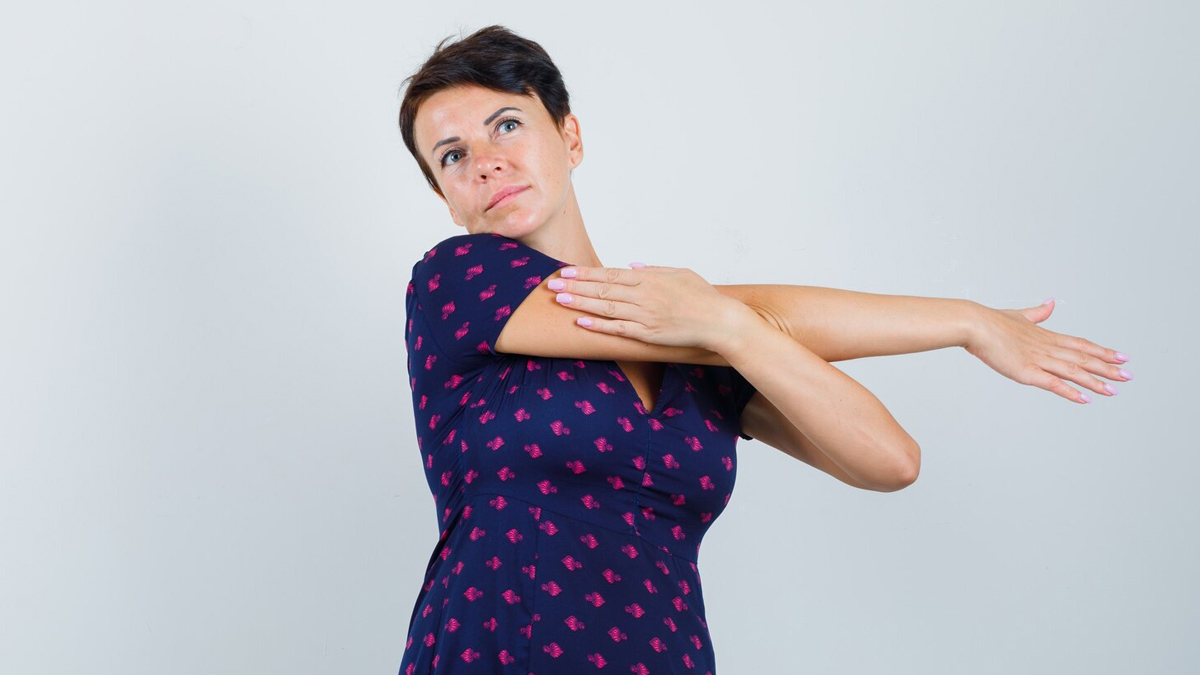
Have you ever struggled to move your shoulder, as though its joint is stuck and its movement limited? If that is the case, you could be suffering from a frozen shoulder, also known as adhesive capsulitis. As the name itself suggests, frozen shoulder is when the joints in that part of the body freeze and are unable to facilitate movement. “It is caused by the inflammation and thickening of the tissue surrounding the shoulder joint, often called a capsule,” explains Dr Uday Krishna Myneni, Senior Consultant Orthopaedic Surgeon, Yashoda Hospitals, Hyderabad, adding that immobilisation of the shoulder after an injury can also cause frozen shoulder.
Table of Content:-
But the question that we aim to answer in this particular article is whether frozen shoulders are more common in menopausal women and if hormonal shifts during this life stage have anything to do with the increased risk.
Why Is Frozen Shoulder More Common During Menopause?

According to Dr Myeni, there is little to no evidence directly linking menopause to frozen shoulders. However, it is more commonly seen around the time of menopause, and hormonal shifts during this stage are believed to play a role in its development.
Research suggests frozen shoulders typically occur in middle-aged individuals, with a higher prevalence in women.
A study published in The Journal of Steroid Biochemistry and Molecular Biology sheds light on why frozen shoulders are more common in women around menopause. Researchers found that a drop in oestrogen, particularly oestradiol (E2), plays a key role in driving the fibrosis (thickening and scarring of tissue) that causes the condition. Using both animal models and tissue samples from patients, the team discovered that oestradiol and a related receptor called GPER can protect against this fibrosis by calming overactive fibroblasts — the cells responsible for producing excess scar tissue.
Dr Myeni explains, "As soon as menopause hits, oestrogen and progesterone start declining gradually. Oestrogen is a hormone that affects every part of a woman's body and has oestrogen receptors present in her skin, muscles, bones, ligaments, and tendons. As oestrogen starts declining, collagen and elastin, two important connective tissues, degrade at a faster pace. The reduction in oestrogen makes the shoulder capsule more prone to inflammation and fibrosis, increasing the likelihood of frozen shoulder.
Signs Of Frozen Shoulder Women Should Watch Out For

Some of the common signs of frozen shoulder in menopausal women include:
- Persistent shoulder pain
- Stiffness in shoulder movement
- Limited range of motion – up, behind the back, or across the body; even lifting a bag or combing hair becomes a challenge.
- Shoulder pain even when you’re doing nothing
- Weakness in the affected arm
Also Read: Winter Health Alert: Orthopaedic Issues To Watch Out For And Preventive Tips
How To Prevent Or Manage Frozen Shoulders?

Menopausal or perimenopausal women can prevent or manage frozen shoulder by:
- Avoiding prolonged immobility after surgery or illness
- Keeping shoulder joints active with daily stretches
- Managing thyroid and diabetes
- Getting regular vitamin D levels checked
- Seeking early orthopaedic consultation at the first sign of shoulder stiffness
Conclusion
Frozen shoulder is a painful condition characterised by joint stiffness and a progressive loss of motion. While anyone can develop the condition, women, particularly those in their menopausal stage, are at a greater risk. The reason could be hormonal; however, other factors can also lead to the condition. The key is to consult a doctor as soon as you notice signs. Ensure that you keep your shoulder joints active but avoid straining them, which can further complicate the problem.
Also watch this video
How we keep this article up to date:
We work with experts and keep a close eye on the latest in health and wellness. Whenever there is a new research or helpful information, we update our articles with accurate and useful advice.
Current Version
Oct 04, 2025 15:49 IST
Published By : Tenzin Chodon
